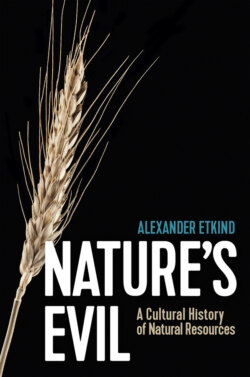Читать книгу Nature's Evil - Alexander Etkind - Страница 12
ОглавлениеPART ONE HISTORY OF MATTER
Good history writing has always interwoven different peoples and disciplines. The link between resources and institutions lies at the deepest level of this interweaving. Social history aspires to reconstruct ‘history from below’, but it has usually ignored the very lowest level – raw materials. Endowed with their own life, each and every one of these commodities makes a rich and fascinating subject for historical study. Together with people, they have also been agents of our joint history. ‘For men and commodities are the real strength of any community,’ wrote David Hume.1 Agency is always partial. No single agent is completely autonomous – neither man, nor nature, nor a sovereign ruler. A sack of grain, a bale of cotton, a barrel of oil – they all have their agency. The history of resources is the real history from below: you can’t go any lower. And this history is full of its own distinctive agency. It is not a reductive explanation of human experience. On the contrary, I wish to learn how to find partners in a grain of wheat, a fibre of hemp or a lump of coal.
Addressing a huge variety of natural resources, I will explore their economic, cultural and political lives from the bottom up – from the earth to the state. Each chapter takes four steps in this upward movement. First, we look at the inherent characteristics of the raw material. Second, we learn about the methods of processing it, which define the specifics of the labour required. Third, we switch our attention to the institutions which organise this labour and which derive income from this material. Fourth, we engage with the political features of the state which depends on the given resource.
Note
1 1 Hume, Political Essays, p. 124.
